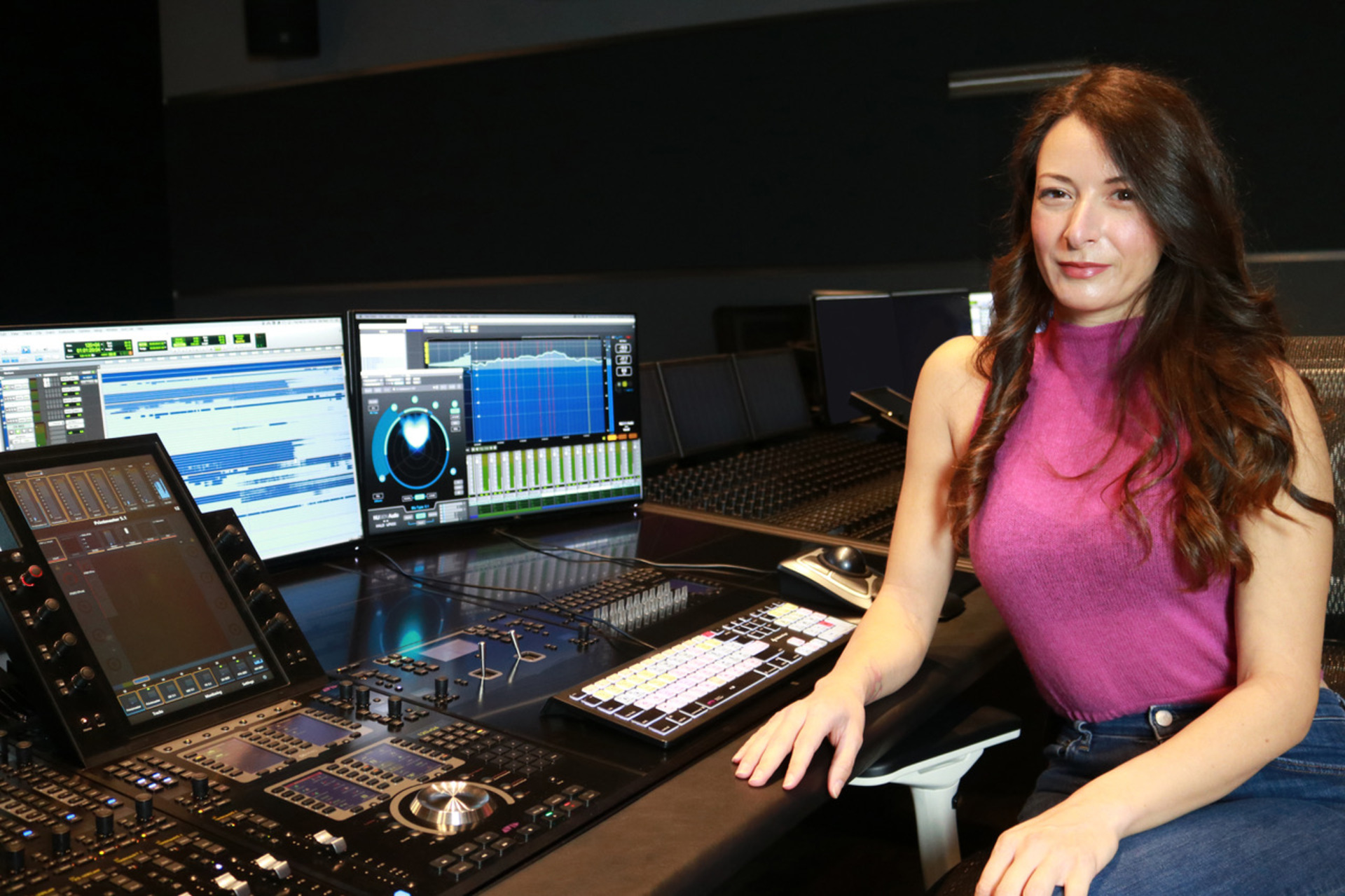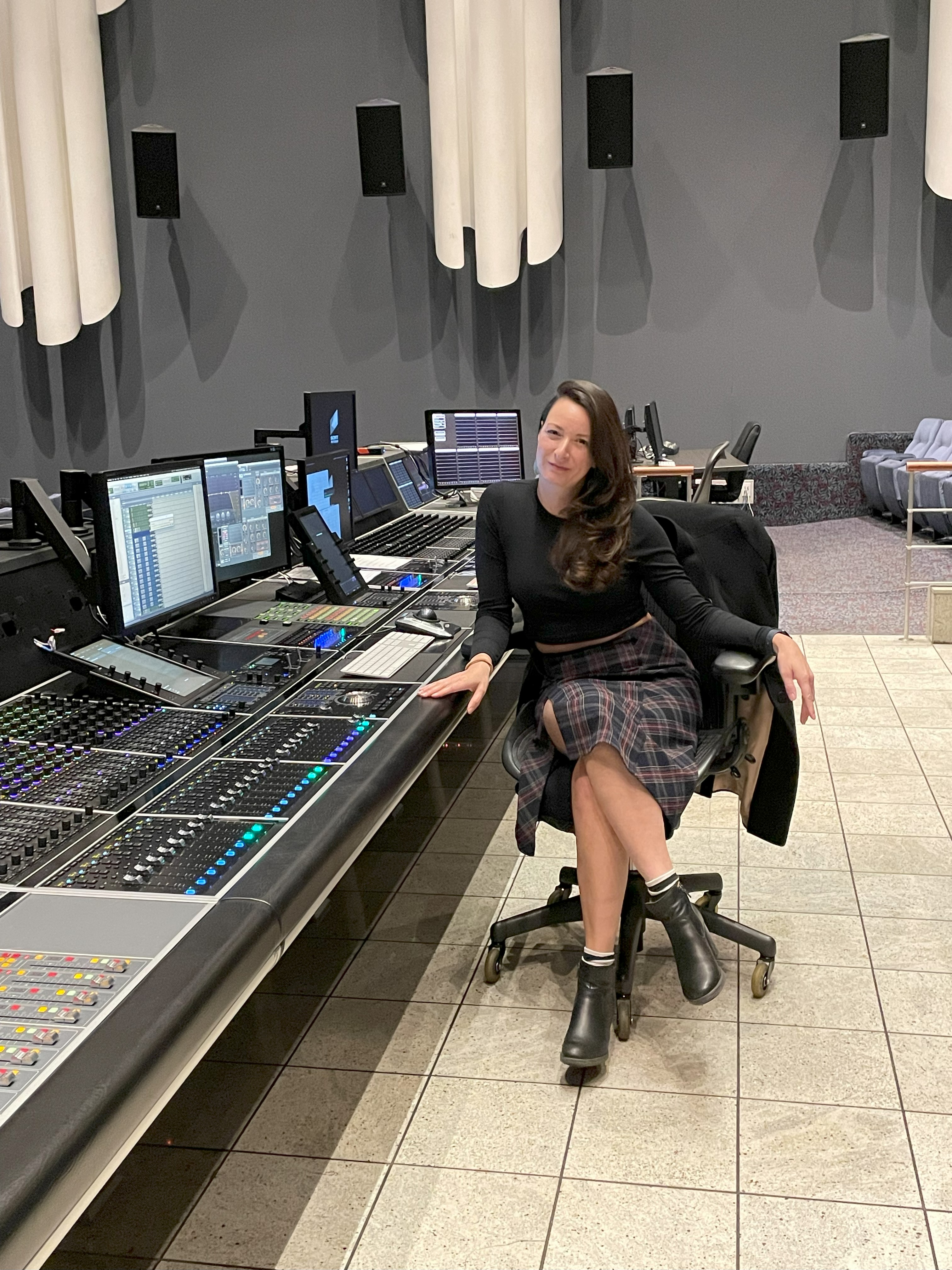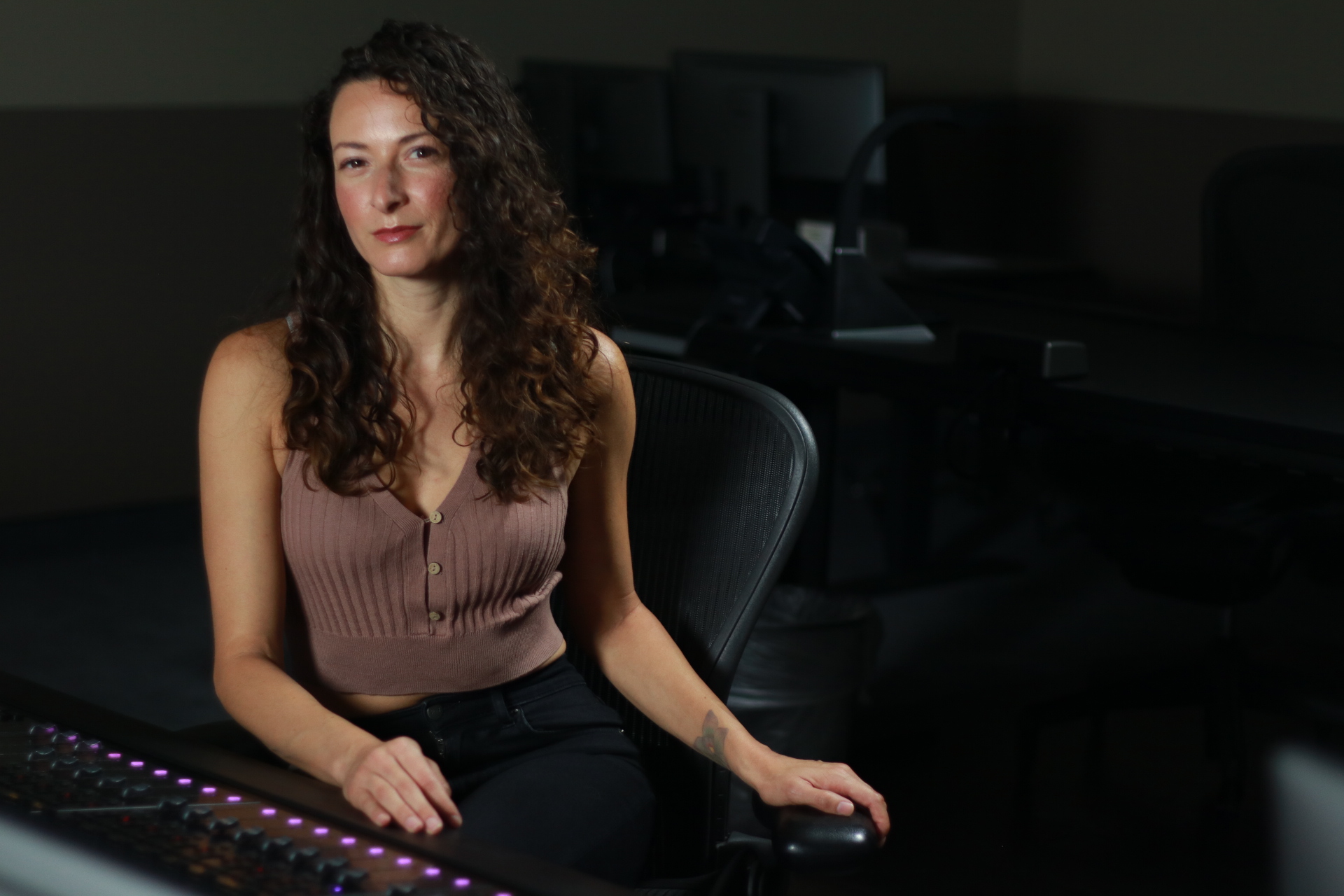Invisible Craft, Unmistakable Impact:
Alexandra Fehrman’s Journey Through Film Sound
When Alexandra Fehrman first walked into a recording studio at 15, it wasn’t the cables or consoles that pulled her in. It was something much less technical, much more human. “Honestly, it was the feeling of making something with people that is emotionally effective,” she recalls. “You’re part of translating a live experience into something others can feel later. And my job as an engineer is to preserve and enhance that energy.”
She was there to take guitar lessons, but instead found herself helping to rewire the studio’s patch bay. What started as a chance encounter with soldering irons and signal chains became a calling.
From Practice Rooms to Pro Tools
Fehrman’s early mentor was analog to the bone. He bristled at the idea of digital recording. “When I told him I wanted to go to school to learn Pro Tools, he thought it was disrespectful,” she says. “But I went anyway.” She was 17, driven, and curious. The kind of curiosity that saw her hanging around studios, taking on sessions well beyond her years. “The bands weren’t happy to see a kid running the room, but I didn’t care. I was learning, and my mentor Don trusted me to be there.”
Her path led her through a string of studios and overnight shifts transferring film to tape. Her big pivot came not from gear, but from a Guillermo del Toro film. “I saw Pan’s Labyrinth and fell in love with the soundscape. I had never thought about post-production like that before,” she says. “Who makes this stuff sound so rich?”
The answer, eventually, was her.
Making Her Way by Mixing Everything
When she landed a job at TODD AO, once the largest independent post-production sound house in LA, she started at the bottom: setting up rooms, assisting mixers, editing. “Anything I could mix, I did. Indie films, shorts, music videos. I mixed after hours. I just wanted to get better.”
Today, she works as a re-recording mixer and sound supervisor in Los Angeles, usually handling dialogue, music, ADR and group, while a second mixer focuses on effects, Foley, and backgrounds. She typically works on productions like CODA, Everything Everywhere All at Once or The Boys. But her focus is not on the division of labor—it’s on the integrity of the whole.
“When everything is working in concert, the music, the dialogue, the emotion, it’s like a puzzle locking in,” she explains. “You shape it so the audience feels it, without noticing what you’ve done.”
What Makes A Good Mix?
Her take is pointed and passionate: “Know your tools so well that you don’t think about them. Only think about the story.” That means mastering the technical layer to reach beyond it; ensuring every cue, every line, every sonic detail serves the narrative. “Sometimes, I’ll have to pull all the music out. But I want that moment to feel natural, not abrupt. You want people to stay in the ride, not notice the track change.”
Whether it's tension or tenderness, her focus is on emotional clarity. “How can I make this feel really rushed? Or really terrifying? And how can I do that without the audience seeing the gears move?”
A Woman in a Room Full of Assumptions
Fehrman never made a big deal of being a woman in sound, at least not at first. “I always thought it was my age that made people hesitate. I looked really young, I was young. But over time, I realized there was more to it.”
Because she signed emails as “Alex,” early on, people didn’t expect her to be a woman when she showed up. “There’d be a moment of surprise. Sometimes they’d doubt me. But we’d work through it.” That first glance shift still happens sometimes, even now. “There are three kinds of people: ones who just get on with it, ones who need a little convincing, and ones who never will. I'm here working and that's the best thing I can do, keep changing people's perspective and one mix at a time.”
Advice Without Illusion
To those wanting in, her advice is straightforward:
“Passion works. Be in sound. Even when you're not getting paid, even when there's no job—stay in it. Keep your skills up. Keep listening to how sounds make you feel. Be ready when the moment comes.”
And when it doesn’t come right away? “Follow up. Persevere. The people you’re reaching out to are busy. It’s not a rejection, just keep pursuing that perfect intersection of when timing and opportunity meet. Stay in it.”
The Invisible Art, The Visible Problem
Despite all the talent and technology, Fehrman admits the industry has its challenges. “We're the last step in the process. By the time it gets to us, there’s often little budget left. Timelines shrink. Expectations don’t.” That compression squeezes the magic out of what should be a finely tuned, creative effort. “And because our work is invisible when it’s good, it’s easy to underestimate.”
Streaming, too, adds another twist. “We’re mixing in large rooms, but most people listen through TV speakers, earbuds or laptop speakers. So yes, I’m mixing for the theaters, but I’m thinking all the way down to the phone. Always.” That means building mixes that translate across formats without losing their soul.
On a Good Day
On a good day, a great mix survives all that. “It’s still there, if you listen. It may not be what I heard in the mix room, but if it conveys the feeling, if it carries the story, then we’ve done our job.”
And she’s proud of that job. “There’s been so much love, stress, work and vision that went into making a film by the time it gets to me. My role is to finish it, to make it all come together. That’s an incredible responsibility.” One that she still carries, scene by scene, frame by frame, mix by mix.
Info:
Alexandra Fehrman is a re-recording mixer and supervising sound editor for film and series, based in Los Angeles. Recent works include American Fiction, Everything, Everywhere All at Once, Coda and The Boys.


